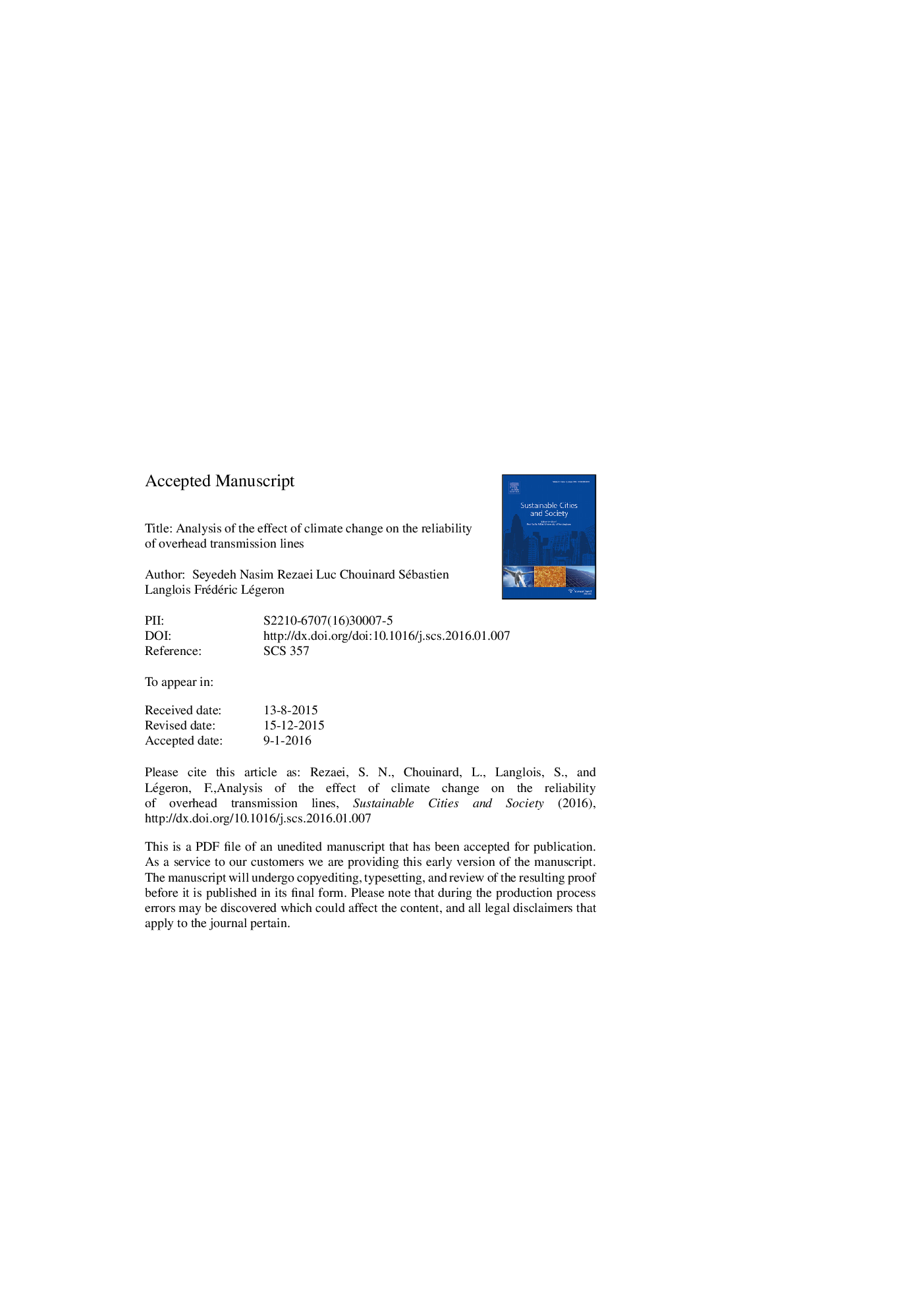| Article ID | Journal | Published Year | Pages | File Type |
|---|---|---|---|---|
| 4928287 | Sustainable Cities and Society | 2016 | 26 Pages |
Abstract
Climate change is anticipated to influence the reliability of overhead transmission and distribution lines through impacts on extreme weather events. Changes in the frequency and intensity of wind and ice storms may have a considerable effect on applied loads and can consequently affect the probability of structural failure of different components of the line. This study examines the reliability of transmission lines under a range of assumed changes in the mean and standard deviation of climatic variables affecting transmission lines such as annual extreme wind speed and ice thickness. The methodology used for the reliability analysis of transmission lines under current and future climatic conditions is based on the concepts of statistical learning theory. The sensitivity study provides the information required to improve the capacity of transmission lines and mitigate long-term risks from the effects of a changing climate. The results indicate that climate change as predicted by many researchers can significantly affect the reliability of existing transmission line systems. Hence, relying on the historic climatic data may not be sufficient to ensure an adequate reliability of transmission line systems in the future. The specification of design loads for the evaluation of existing lines or the design of new lines should consider both future climate models and historical climate data.
Related Topics
Physical Sciences and Engineering
Energy
Renewable Energy, Sustainability and the Environment
Authors
Seyedeh Nasim Rezaei, Luc Chouinard, Sébastien Langlois, Frédéric Légeron,
